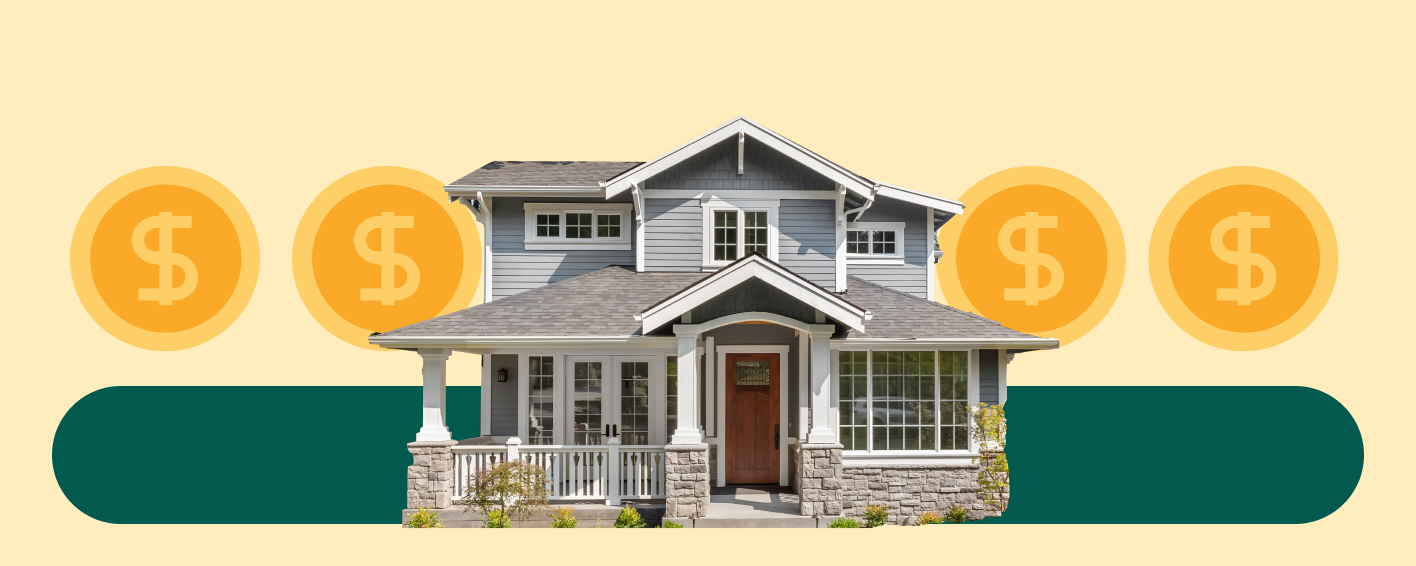More costly: Even if it may be much easier to receive seller funding than a conventional mortgage, you'll normally be charged a greater rates of interest and pay more over the life of the loan. Balloon payment issues: If you can't pay for to make the balloon payment with your own money reserves, you may need to get financing to cover the cost. If you don't do either, you run the risk of losing your home and all the cash you've paid up to that point. No price-shopping: With a traditional home mortgage, you can go shopping around and compare rates and other terms on a single home.
While they're not always set in stone you can try negotiating on some points you don't have the choice to price-shop. An existing mortgage can be troublesome: If the owner still has a home loan on the home and the loan has a due-on-sale stipulation, the lender can require instant payment of the rest of the primary balance once the sale goes through to you. What is the difference between accounting and finance. If neither you nor the owner pay, the bank can foreclose on the home. To prevent this, make certain the seller owns the property complimentary and clear. If not, consider among the options below. More work: While you can close on the house with the purchaser faster than you might with a standard home loan, seller funding may require more operate in general.
Potential for foreclosure: If the buyer defaults on the loan however does not leave the residential or commercial property, you might need to begin the foreclosure process, which can get complicated and costly. Possible repair work costs: If you end up needing to reclaim the residential or commercial property, you may be on the hook for repair and maintenance expenses if the purchaser didn't take excellent care of the house. If the owner has an existing home loan on the home, it likely has a due-on-sale stipulation attached to it. There are some situations, however, where the lending institution may accept seller financing under specific conditions. And there might be other ways to make it Get more information happen without including the original mortgage lending institution at all.
As you believe about which one is right for you, think about employing an attorney to help you draft up the contract to avoid potential issues down the road. With this arrangement, you effectively take control of the regular monthly payments on the seller's home mortgage loan, however they're still lawfully responsible for making the payments under their agreement with the loan provider in fact, the lender might not even understand that you have actually presumed the monthly payments. This implies that if you stop paying, they're still on the hook, and it could destroy their credit if they don't take up payments once again. In addition, if the holder of a domestic mortgage becomes aware of this arrangement they might call the loan due right away.

But otherwise, don't expect numerous sellers to get thrilled about this alternative because of the increased risk they're required to take on. With a wraparound mortgage, you're developing a loan that's huge enough to cover the existing loan plus any equity the owner has in the residential or commercial property. You make the payment on the bigger wraparound home mortgage, and the owner takes a portion of that amount to make the payment on the initial mortgage loan. The distinction in between the payments is the owner financing on the equity part of the home. The primary drawback of a wraparound home mortgage is that it's junior to the original home loan.
With this setup, you ultimately lease the residential or commercial property from the seller with an option to buy it. In some cases, you may even have a contract drawn up to buy the house at a set date in the future. This choice allows the buyer to guarantee control over the home, and it can offer the owner some time to complete paying off the original home loan. Just like a wraparound mortgage, however, the purchaser is still at the grace of the owner, and if the latter defaults on their loan, the lease agreement will no longer be in impact when the bank forecloses.
Not known Details About How Does The Federal Government Finance A Budget Deficit
It works just when the seller owns the home free and Click to find out more clear since the owner holds onto the residential or commercial property title while the buyer makes month-to-month payments. As soon as the purchaser completes the repayment term which can be whatever the two parties accept they'll receive the deed to the home. If they default, however, the owner retains the deed and can repossess the house. With a rent-to-own funding plan, the purchaser moves in and leases the home, with a part of their monthly payment serving as a deposit or deposit, which they can use to acquire the house down the road. How to owner finance a home.
There are various methods to set up a rent-to-own agreement. For example, the occupant might have the choice to buy the house at any point during the lease, or they might be required to purchase the end of the lease. If the purchaser does not go through with acquiring the house, the seller may have the ability to keep the lease premiums. As an outcome, this might not be a good option if you're on the fence or wish to avoid the danger of something changing (What is a future in finance). Owner-financed industrial residential or commercial property sales or owner funded land sales are not uncommon. A business homeowner might have any number of factors for being open to this kind of realty deal, consisting of all the above advantage, plus tax benefits.
The industrial property market has been struck hard by the coronavirus crisis in lots of parts of the nation. It has become significantly tough to get particular types of bank loan, consisting of some business realty loans. That might lead to sellers being open to imaginative funding options. If you are a potential purchaser, don't be scared to ask whether the seller is open to this type of arrangement. If you are a financier, think about providing seller financing to draw in more potential purchasers. Suggestion: Constantly examine a purchaser's personal and service credit history so you'll look out to possible threats.

Here are some of the more common concerns, together with their responses. Among the benefits of utilizing owner financing rather of a standard home loan is that you'll save money on closing costs. That's because you won't have to deal with any lending institution charges, such as application and origination costs, interest points, and more. That said, you can still expect some closing costs with a seller funding arrangement. For instance, your city government might charge a timeshare cancellation companies charge to record the sale of the house, and you may want to get an appraisal to guarantee you have the best prices.